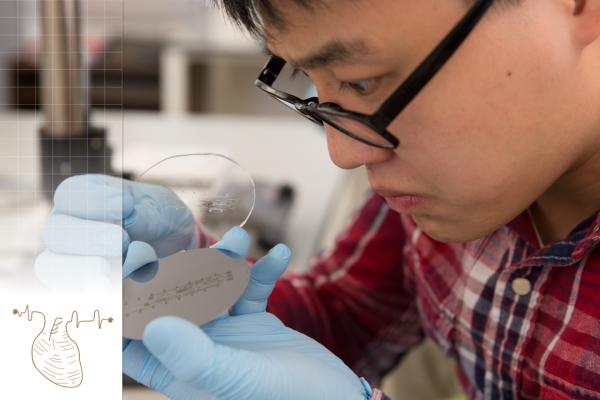Departments
GW Engineering is home to six academic departments that blend the rigors of mathematical discipline, the joy of scientific exploration, and the guided discovery of engineering principles to develop the engineering and computer science leaders of tomorrow.
Department of Biomedical Engineering
Biomedical engineering is the application of engineering practices to human health issues. It combines the mechanical and mathematical expertise of engineering with the medical expertise of physicians.
Department of Civil & Environmental Engineering
Civil and environmental engineering is a broad and exciting discipline that draws from various fields of science and technology to provide safe, sustainable, and economic solutions for the design, construction, and maintenance of the built environment where we live, work, and play.
Department of Computer Science
Computer science provides the tools and technology that enhance, speed up, and in many cases make scientific and technological advancement and breakthroughs possible. It also shapes much of the thinking and the methodologies that students, practitioners, and experts employ in many fields.
Department of Electrical & Computer Engineering
Electrical and computer engineering combine electronic design, computer architecture, programming of computing systems, computer networks, and applied mathematics. Computer engineers are involved in many hardware and software aspects of computing, from the design of individual microprocessors, personal computers, and supercomputers, to circuit design.
Department of Engineering Management & Systems Engineering
Engineering management and systems engineering develops creative leadership to bridge dynamic, complex technologies and societal needs. This includes delivering instruction in the management of technology and in systems engineering, operations research, and allied fields to undergraduate and graduate students who are preparing to assume leadership roles as technology professionals.
Department of Mechanical & Aerospace Engineering
Mechanical engineering is the broadest engineering discipline, ranging from nanotechnology to large scale manufacturing. Mechanical engineers are concerned with the principles of force, energy and motion, and they work on the design and manufacture of mechanical systems and thermal devices and processes.







